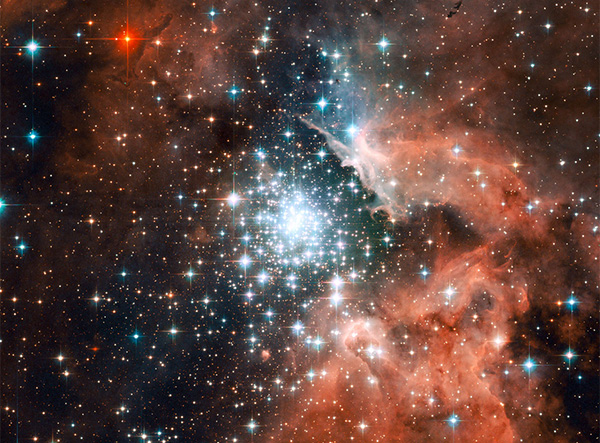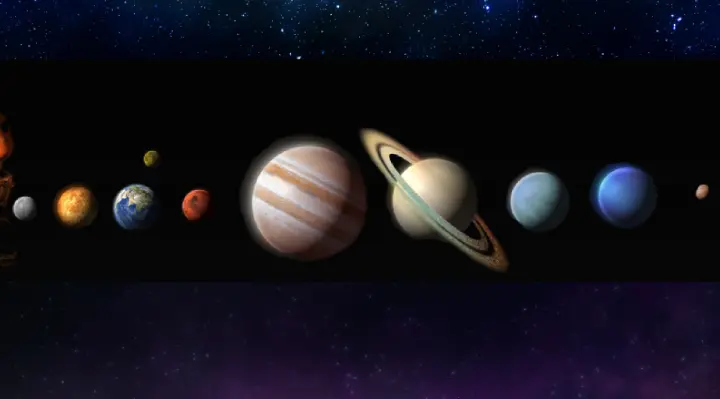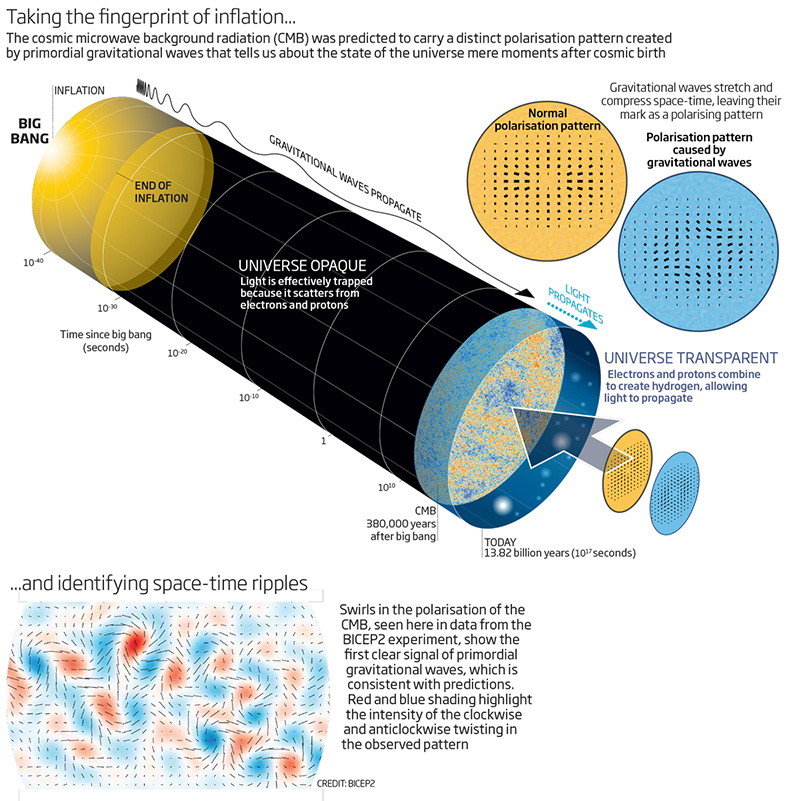Einstein's Right Again... This Is Perhaps The Greatest Discovery Of The Century
March 17, 2014

Photo: NASA, ESA, Hubble Heritage (STScI/AURA)-ESA/Hubble Collaboration
Nearly a century ago, Einstein came up with the idea of gravitational waves. Now, in a discovery that physicists are calling "extraordinary" and "spectacular," observers at the South Pole have found the first direct evidence they exist.
The Theory of General Relativity seemed truly bizarre when Albert Einstein first articulated it 99 years ago: gravity, the great physicist declared, was no longer to be seen as a force, but rather as the warping of “spacetime,” an amalgam of those two formerly independent concepts. The theory also predicted that violent events should trigger gravitational waves, which would set spacetime rippling, like a vat of cosmic jello. There has been some circumstantial evidence of those ripples, involving changes in orbits of binary stars, but what’s always been missing is a smoking gun, direct observational measurement of a gravitational wave.
We now have a glimpse of what gravity looks like. And it's giving us a direct look at the beginning of the universe.
The finding comes out of the BICEP2 experiment, which has been measuring the polarization (or direction) of the photons that have been rushing toward our telescopes ever since the universe cooled enough to let light flow uninhibited.
The thing that has scientists really excited is that it could provide the first direct evidence for a theorized event called inflation that caused the universe to exponentially grow just a fraction of a fraction of a second after it was born.
The Inflationary Universe theory, postulated in the 1980s: just .00000000000000000000000000001 seconds (give or take) after the Big Bang, the theory said, the cosmos underwent a burst of expansion so furious that it was briefly flying apart faster than the speed of light. Exceeding light speed is supposed to be impossible, except that that law applies only to something moving through spacetime, not spacetime itself expanding.
This is perhaps the greatest discovery of the century. Cosmologists are deeming it Nobel Prize-worthy and just as exciting as the 2012 Higgs boson announcement, if not more.
 Dogs Are Forced To Wear The Things They Steal — And It’s Hilarious
Dogs Are Forced To Wear The Things They Steal — And It’s Hilarious
 Meet Nazgul: The Dog Who Crashed An Olympic Ski Race And Nearly Won
Meet Nazgul: The Dog Who Crashed An Olympic Ski Race And Nearly Won
 She Was Feeling Low On Confidence, So Her Classmates Covered Her Desk In Sticky Notes
She Was Feeling Low On Confidence, So Her Classmates Covered Her Desk In Sticky Notes
 A Childhood Bond Reunited: Firefighter Saves The Horse That Taught Him To Ride
A Childhood Bond Reunited: Firefighter Saves The Horse That Taught Him To Ride
 This Baby Giraffe Named Eugene Was Born With The Most Hilarious Tuft Of Hair You’ve Ever Seen
This Baby Giraffe Named Eugene Was Born With The Most Hilarious Tuft Of Hair You’ve Ever Seen
 On February 28, A Rare Planetary Parade Will Appear In The Evening Sky
On February 28, A Rare Planetary Parade Will Appear In The Evening Sky
 Reporter Asks Eileen Gu 'Do You Think Before You Speak?' — Her Answer Is Going Viral
Reporter Asks Eileen Gu 'Do You Think Before You Speak?' — Her Answer Is Going Viral
 Son Stops Mid Race To Give His Mom A Kiss During The Special Olympics
Son Stops Mid Race To Give His Mom A Kiss During The Special Olympics
 He Went Back To Pay The Man Who Helped Him — But That’s Not What Happened
He Went Back To Pay The Man Who Helped Him — But That’s Not What Happened
 A Mom Saw A Soldier Who Didn't Have Any Family... So She Hugged Him
A Mom Saw A Soldier Who Didn't Have Any Family... So She Hugged Him
 Man Helps Distressed Swan Find Her Way Back To The River
Man Helps Distressed Swan Find Her Way Back To The River

